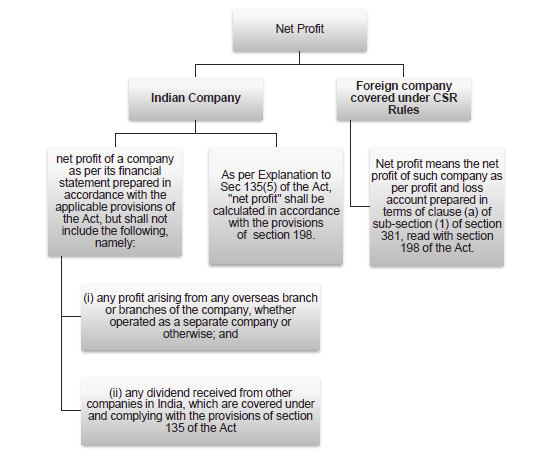CSR Partnership
Be a Part of the Cause
Apply to Join
Be Socially Accountable - Contribute towards Nation Building Goals
CSR Partners
Increasing
Employee Engagement
A virtuous pledge of giving back to the society and community with CSR partnership evokes the sense of connecting within the employees, thus improving their engagement and productivity.
Engage
Make a Difference to
Communities at Local & Global Levels
When CSR cause is in line with the Company values, CSR gives the opportunity to set a broader vision to make a positive impact both locally and globally.
Support
Improving
Business Bottom-line
Many significant CSR programs and Digital CSR are known to help in impacting the bottom-line business financials.
Elevate
Establishing
Improved Employer Branding
Pursuing CSR programs is an excellent way of improving your corporate reputation and forming high moral ground as an employer.
Reputation
Improved
Business Bottom-line
Many significant CSR programs and Digital CSR are known to help in impacting the bottom-line business financials.
Elevate
Making
Press Opportunities
A CSR initiative can bring in new press spotlight on your business, in case you are struggling with it.
Spotlight
Joining Hands Together
Partners
We are thankful to our partners who have been supporting our causes wholeheartedly.
Our






Sign up & Take Action
Join us
Fill the following data accurately.
Ask Question
Frequently Asked Questions
FAQs
A company satisfying any of the following criteria during the immediately preceding financial year has to comply with CSR provisions specified under section 135 of the Companies Act, 2013 read with the CSR Rules made thereunder:
i. net worth of rupees five hundred crore or more, or
ii. turnover of rupees one thousand crore or more or
iii. a net profit (as calculated under Section 198 with other adjustments as referred in Rule 2(h) of CSR Rules.) of rupees five crore or more
The Central Government may give directions to a company or class
of companies as it considers necessary to ensure compliance of provisions of this section and such company or class of companies shall be required to comply with such directions.
The Ministry of Corporate Affairs vide Notification No. G.S.R. 40(E) dated 22nd January, 2021 issued the Companies (Corporate Social Responsibility Policy) Amendment Rules, 2021. The same has been made effective from the date of their publication in the Official Gazette i.e. 22nd January, 2021.
In accordance with section 135(1) of the Companies Act, 2013 (“the Act”), every company having net worth of rupees five hundred crore
or more, or turnover of rupees one thousand crore or more or a
net profit (as calculated under Section 198 of the Act with other
adjustments as referred in Rule 2(h) of CSR Rules.) of rupees five
crore or more during the immediately preceding financial year shall
constitute a Corporate Social Responsibility Committee of the
Board.
Further a new sub-section (9) inserted by Companies (Amendment)
Act, 2020 provides that where the amount to be spent by a
company does not exceed fifty lakh rupees, the requirement
under sub-section (1) for constitution of the Corporate Social
Responsibility Committee shall not be applicable and the functions
of such Committee shall be discharged by the Board of Directors
of such company.

Computation of net profit for section 135 is as per section 198
of the Companies Act, 2013 which is primarily PROFIT BEFORE
TAX (PBT) with other adjustments as referred in Rule 2(h) of CSR
Rules. [Clarified by MCA vide General Circular No. 1/2016 dated
12th January, 2016]
As per Section 135(3) of the Act the Corporate Social Responsibility
Committee shall:
a) formulate a CSR Policy and recommend it to the Board,
which shall indicate the CSR activities to be undertaken by
the company;
b) recommend the amount of expenditure to be incurred on the
CSR activities;
c) monitor the CSR Policy of the company from time to time;
and
As per Rule 5(2) of the Rules-
The CSR Committee formulate and recommend to the Board, an
annual action plan in pursuance of its CSR policy, which shall
include the following:
a) the list of CSR projects or programmes that are approved to
be undertaken;
b) the manner of execution of such projects or programmes;
c) the modalities of utilisation of funds and implementation
schedules for the projects or programmes;
d) monitoring and reporting mechanism for the projects or
programmes; and
e) details of need and impact assessment, if any, for the projects
undertaken by the company:
For companies covered under Sec 135(9) and not having CSR
Committee these functions shall be carried out by the Board itself.
Applicability of provisions of Section 135 of the Act is company
specific. Hence, every company whether holding or subsidiary
satisfying the prescribed criteria shall comply with the provisions.
By mere relationship between two companies as Holding and
Subsidiary, shall not extend the applicable provisions to the other
company.
A Holding or subsidiary of a company falling within the ambit of section 135 of the Act, is not required to comply with section
135(1) unless the holding or subsidiary, as the case may be,
itself fulfills the criteria. [General Circular No. 1/2016 dated 12th
January, 2016]
For example: Company A is covered under the criteria mentioned
in section 135. Company B is holding company of company A.
Since, Company B by itself does not satisfy any of the criteria
mentioned in section 135, therefore Company B is not required
to comply with the provisions of section 135.
As per the provisions of section 135(5), if the Company has not
completed the period of three financial years since incorporation,
but it satisfies any of the criteria mentioned in section 135(1),
then it has to comply with CSR provisions. The Company will be
required to constitute a CSR committee and comply with other
requirements of section 135 including spending of at least two
percent of the average net profits of the company made during
such immediately preceding financial years since the date of
incorporation.
A company may undertake the implementation of CSR projects
through the following methods:

As per Rule 8(1) the Board’s Report of a company covered under
CSR rules pertaining to any financial year shall include an Annual
Report on CSR containing particulars specified in Annexure I or
Annexure II, as applicable.
In case of a foreign company, the balance sheet filed under clause
(b) of sub-section (1) of section 381 of the Act, shall contain an
Annual Report on CSR containing particulars specified in Annexure
I or Annexure II, as applicable.
In terms of Rule 9,the Board of Directors of the Company shall
mandatorily disclosel
the composition of the CSR Committee;
l CSR Policy and
l Projects approved by the Board on their website, if any, for
public access.
As a good governance practice, the Impact Assessment Report
may also be disclosed at the website.
In the Companies (CSR Policy) Rules, 2014, the term CSR has
been defined by way of enlisting of activities which shall not be
considered as CSR.
According to Rule 2(1)(d) “Corporate Social Responsibility (CSR)”
means the activities undertaken by a Company in pursuance
of its statutory obligation laid down in section 135 of the Act in
accordance with the provisions contained in these rules, but shall
not include the following, namely:-
i. activities undertaken in pursuance of normal course of
business of the company: Provided that any company
engaged in research and development activity of new
vaccine, drugs and medical devices in their normal course of
business may undertake research and development activity of
new vaccine, drugs and medical devices related to COVID-19
for financial years 2020-21, 2021-22, 2022-23 subject to the
conditions thata)
such research and development activities shall be
carried out in collaboration with any of the institutes or
organisations mentioned in item (ix) of Schedule VII to
the Act;
b) details of such activity shall be disclosed separately
in the Annual report on CSR included in the Board’s
Report;
ii. any activity undertaken by the company outside India except
for training of Indian sports personnel representing any State
or Union territory at national level or India at international
level;
iii. contribution of any amount directly or indirectly to any political
party under section 182 of the Act;
iv. activities benefitting employees of the company as defined
in clause (k) of section 2 of the Code on Wages, 2019 (29
of 2019);
v. activities supported by the companies on sponsorship basis
for deriving marketing benefits for its products or services;
vi. activities carried out for fulfilment of any other statutory
obligations under any law in force in India;
Further, the company shall give preference to the local area
and areas around it where it operates, for spending the amount
earmarked for Corporate Social Responsibility activities. This
provision has to be followed in letter and spirit. [General Circular
No. 06/2018 dated 28.05.2018]
The statutory provision and provisions of CSR Rules, 2014, are to
ensure that activities undertaken in pursuance of the CSR policy
must relate to Schedule VII of the Companies Act, 2013. The
entries in the said Schedule VII must be interpreted liberally so
as to capture the essence of the subjects enumerated in the said
Schedule. The items enlisted in the Schedule VII of the Act, are
broad-based and are intended to cover a wide range of activities.
It is for the Board of the company to take a call on this. [General
Circular No. 1/2016 dated 12th January, 2016 and General Circular
No. 21/2014 dated June 18, 2014 of MCA has clarified]
In terms of the provisions of Rule 8(3)(a) of the Companies
(Corporate Social Responsibility Policy) Rules, 2014 (‘Rules’),every
company having average CSR obligation of Rs. 10 crore or more
in pursuance of subsection (5) of section 135 of the Act, in the
three immediately preceding financial years, shall undertake impact
assessment, through an independent agency, of their CSR projects
having outlays of one crore rupees or more, and which have been
completed not less than one year before undertaking the impact
study.
Accordingly, the company is required to undertake impact
assessment of the CSR projects taken up or completed on or after
January 22, 2021.
As per Rule 2(1)(f) of the amended Companies (Corporate Social
Responsibility Policy) Rules, 2014.
“CSR Policy” means a statement containing the approach and
direction given by the board of a company, taking into account
the recommendations of its CSR Committee, and includes guiding
principles for selection, implementation and monitoring of activities
as well as formulation of the annual action plan.
As per provisions of Section 135(4) and Section 135(5) the Board
shall,—
a. approve the CSR Policy
b. disclose contents of such Policy in its report and also place
it on the company’s website, if any,
c. ensure that the activities included in CSR Policy are
undertaken by the company.
d. ensure that the company spends, in every financial year, at
least two per cent. of the average net profits of the company
made during the three immediately preceding financial years.
In terms of the provisions ofRule5(2) of the amended Rules, the
CSR Committee shall formulate and recommend to the Board,
an annual action plan in pursuance of its CSR policy which shall
specifically include:
a) the list of CSR projects or programmes that are approved to
be undertaken in areas or subjects specified in Schedule VII
of the Act;
b) the manner of execution of such projects or programmes;
c) the modalities of utilisation of funds and implementation
schedules for the projects or programmes;
d) monitoring and reporting mechanism for the projects or
programmes; and
e) details of need and impact assessment, if any, for the projects
undertaken by the company.
It is further provided that the Board may alter such plan at any
time during the financial year, as per the recommendation of its
CSR Committee, based on the reasonable justification to that
effect.
Accordingly, in the given case if the CSR project could be
completed and the amount of money left unutilised, be considered
by the Board for spending for other CSR projects / activities after
amending the Annual Action Plan accordingly. This fact should
also be disclosed in the CSR Report.
In terms of the provisions of Rule 2(d)(iv) of amended Rules, CSR
activities shall not include any activity benefitting employees of
the company as defined in clause (k) of section 2 of the Code on
Wages, 2019.
As per Clause 2(k) of the Code on Wages, 2019 “employee”
means, any person (other than an apprentice engaged under the
Apprentices Act, 1961), employed on wages by an establishment
to do any skilled, semi-skilled or unskilled, manual, operational,
supervisory, managerial, administrative, technical or clerical work
for hire or reward, whether the terms of employment be express
or implied, and also includes a person declared to be an employee
by the appropriate Government, but does not include any member
of the Armed Forces of the Union.
Hence medical camp exclusive for the unskilled labour hired by
the company shall not be permitted as a CSR activity.

